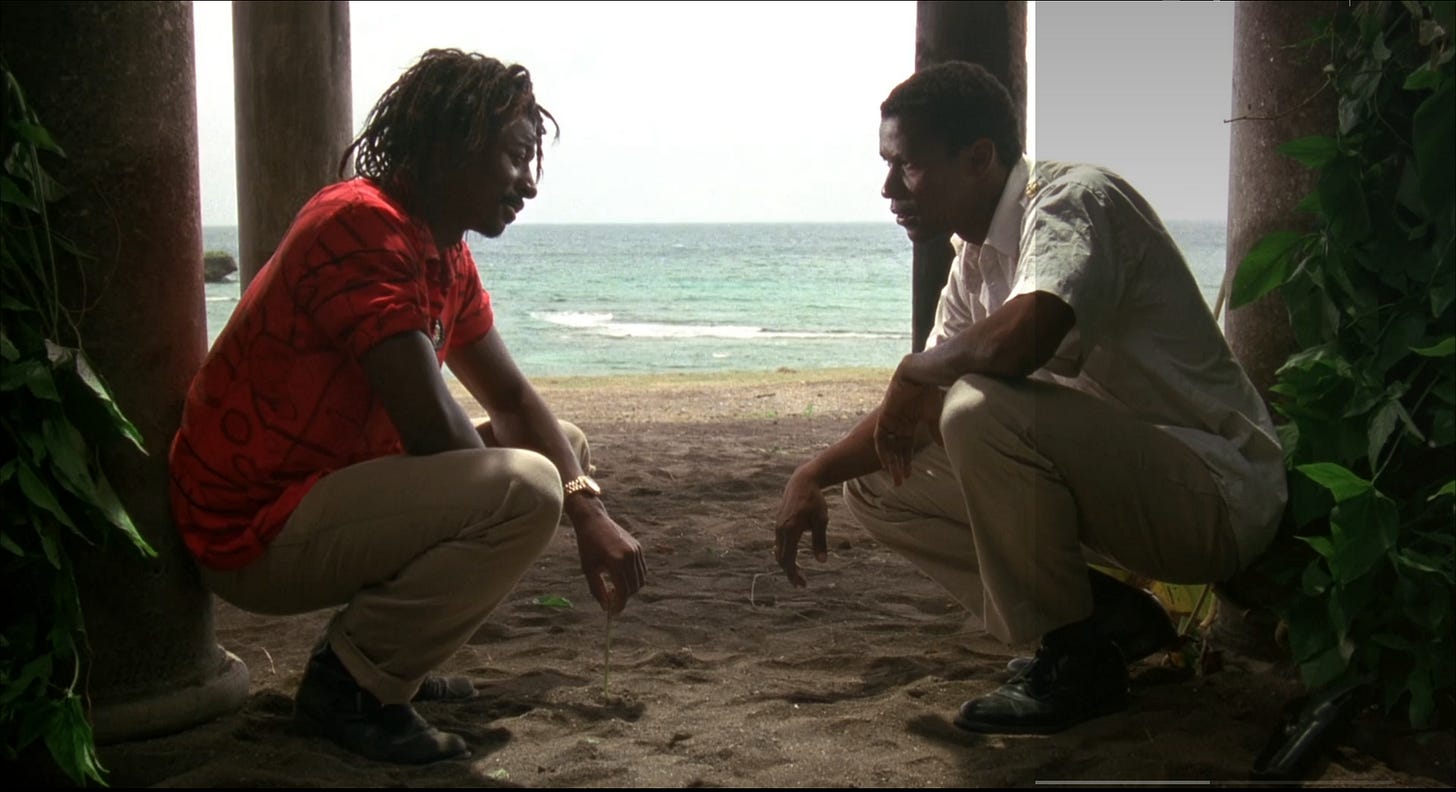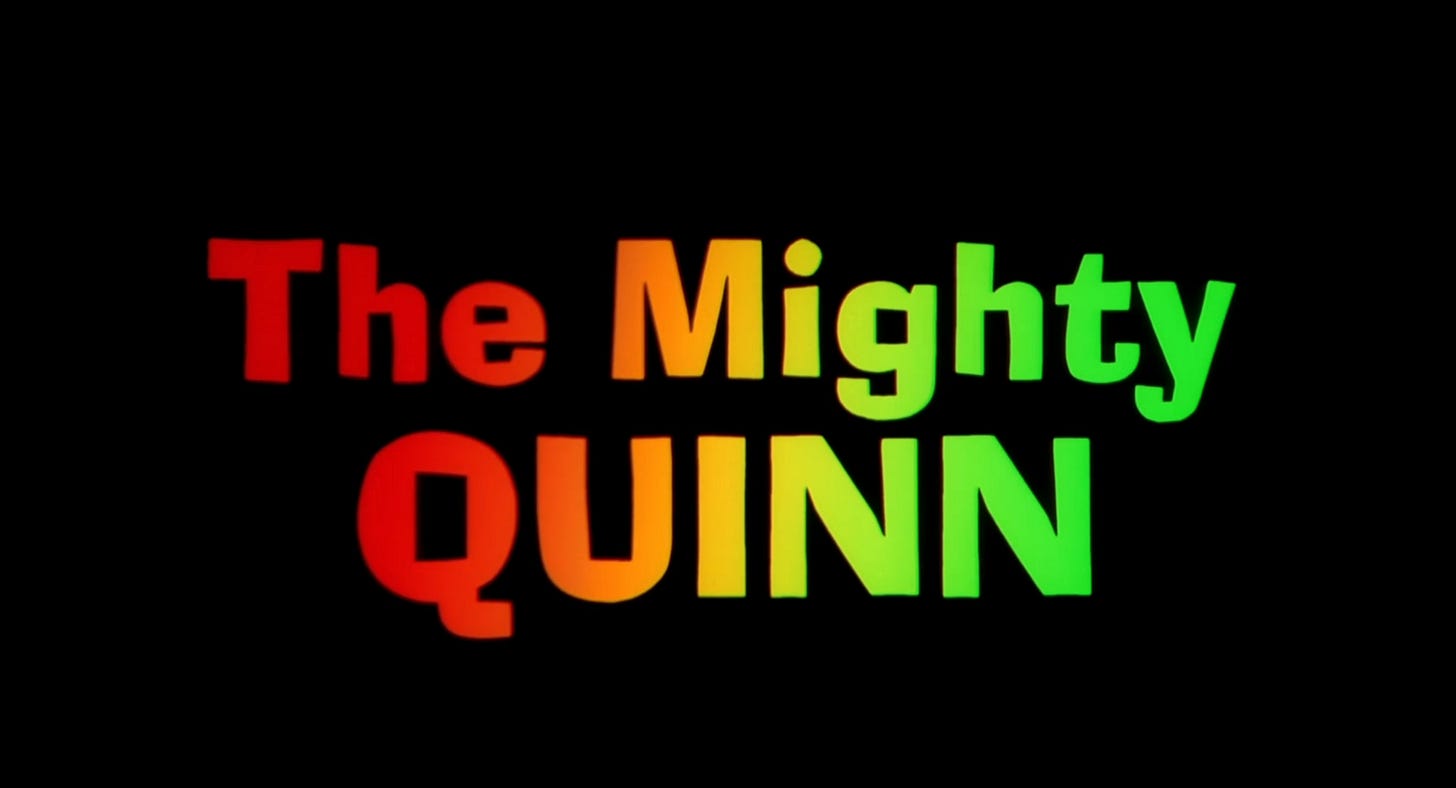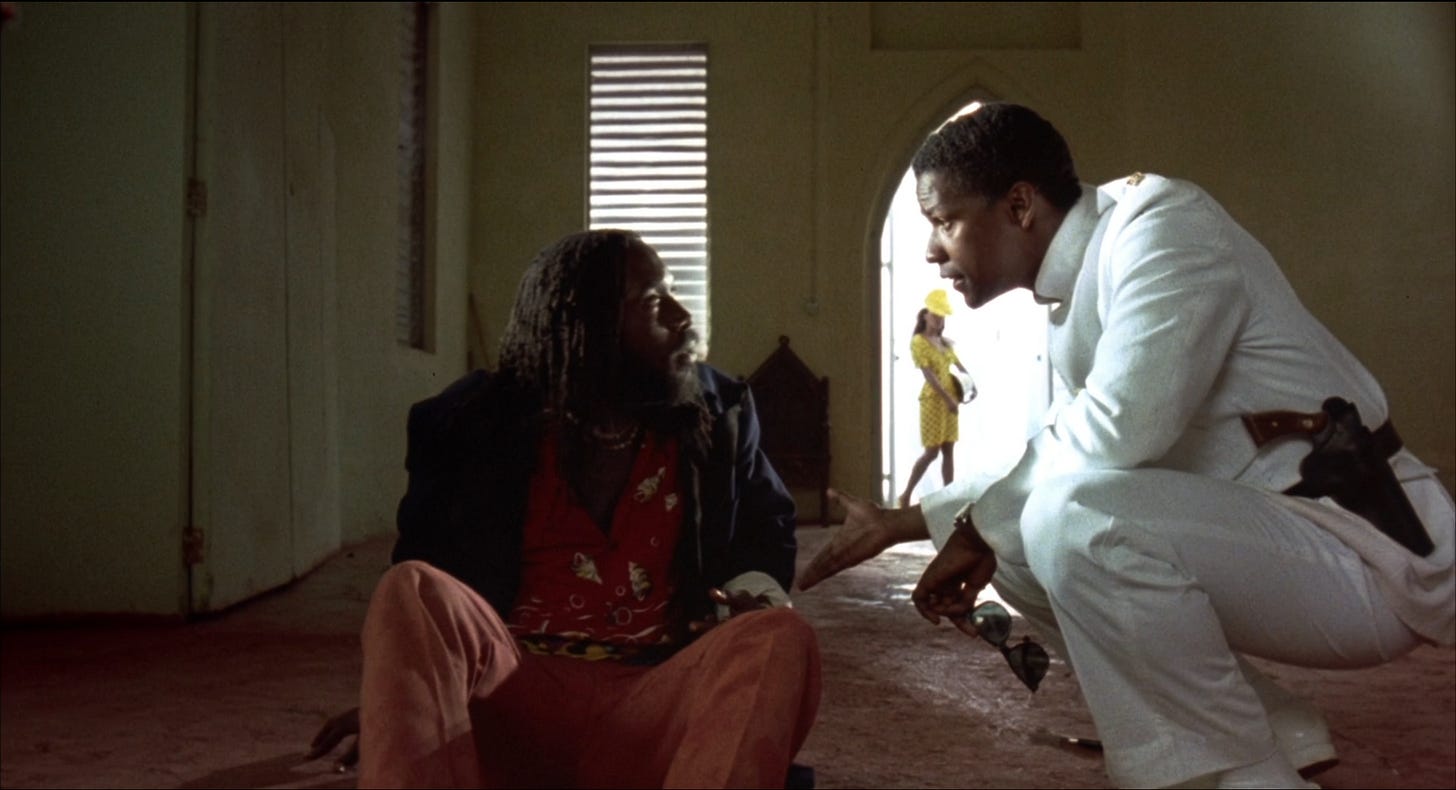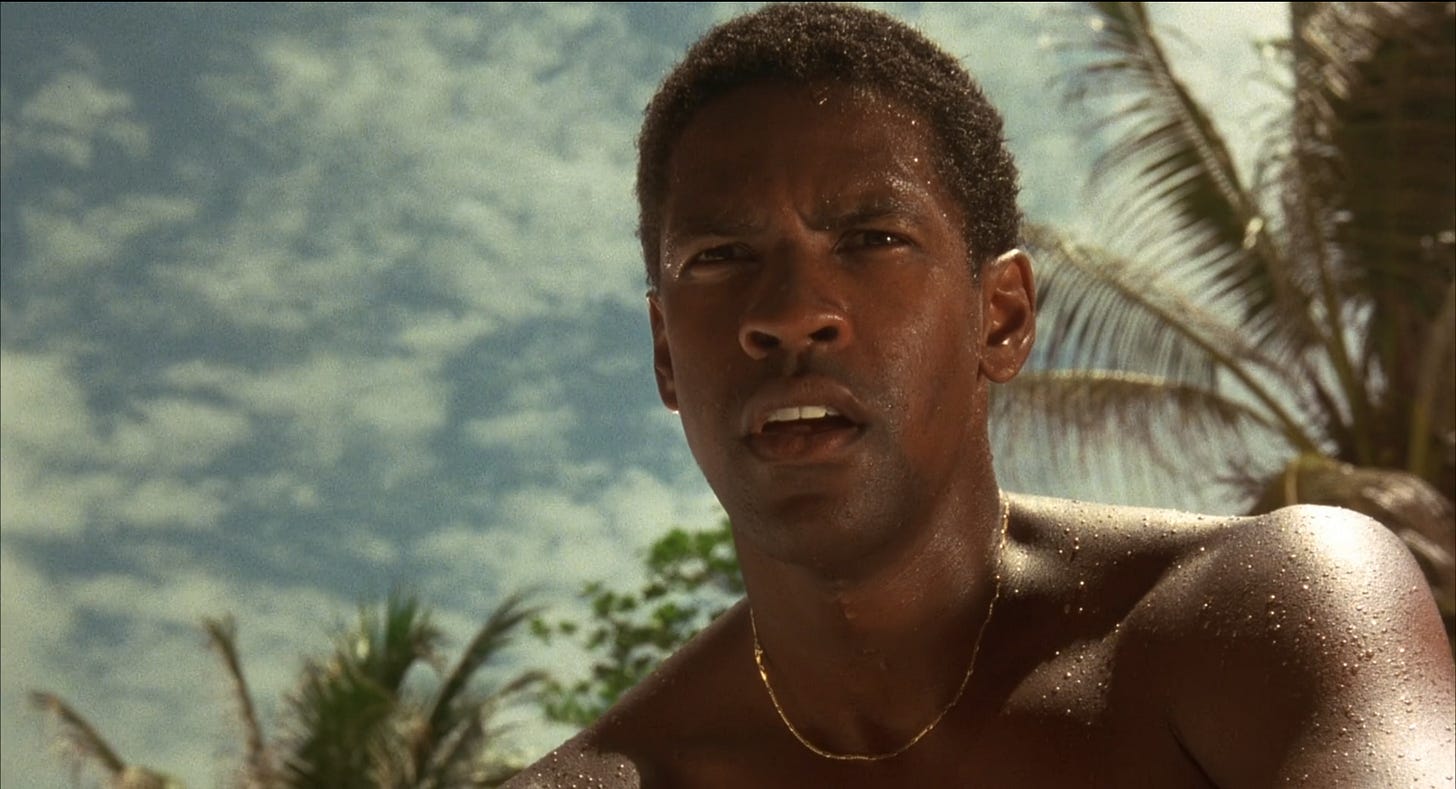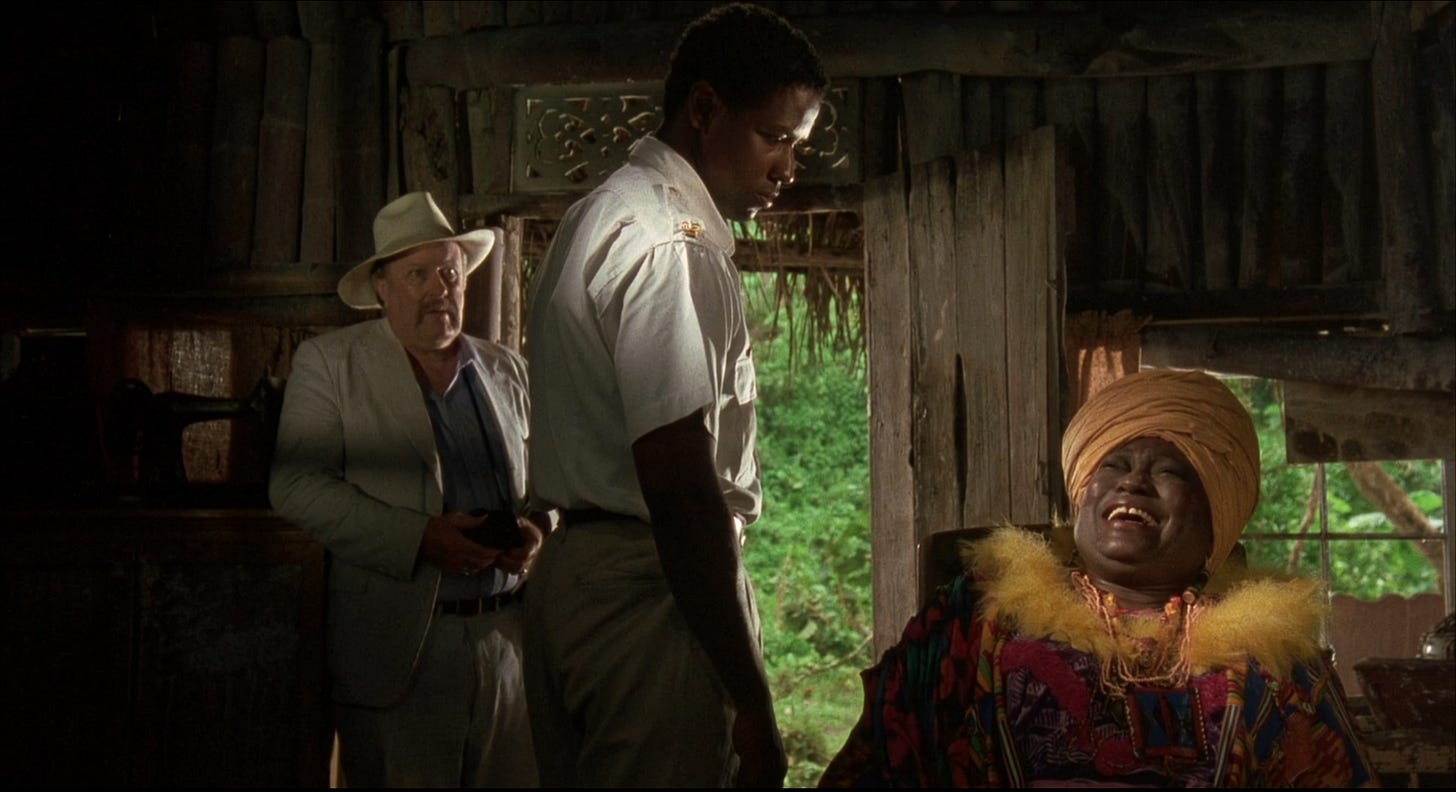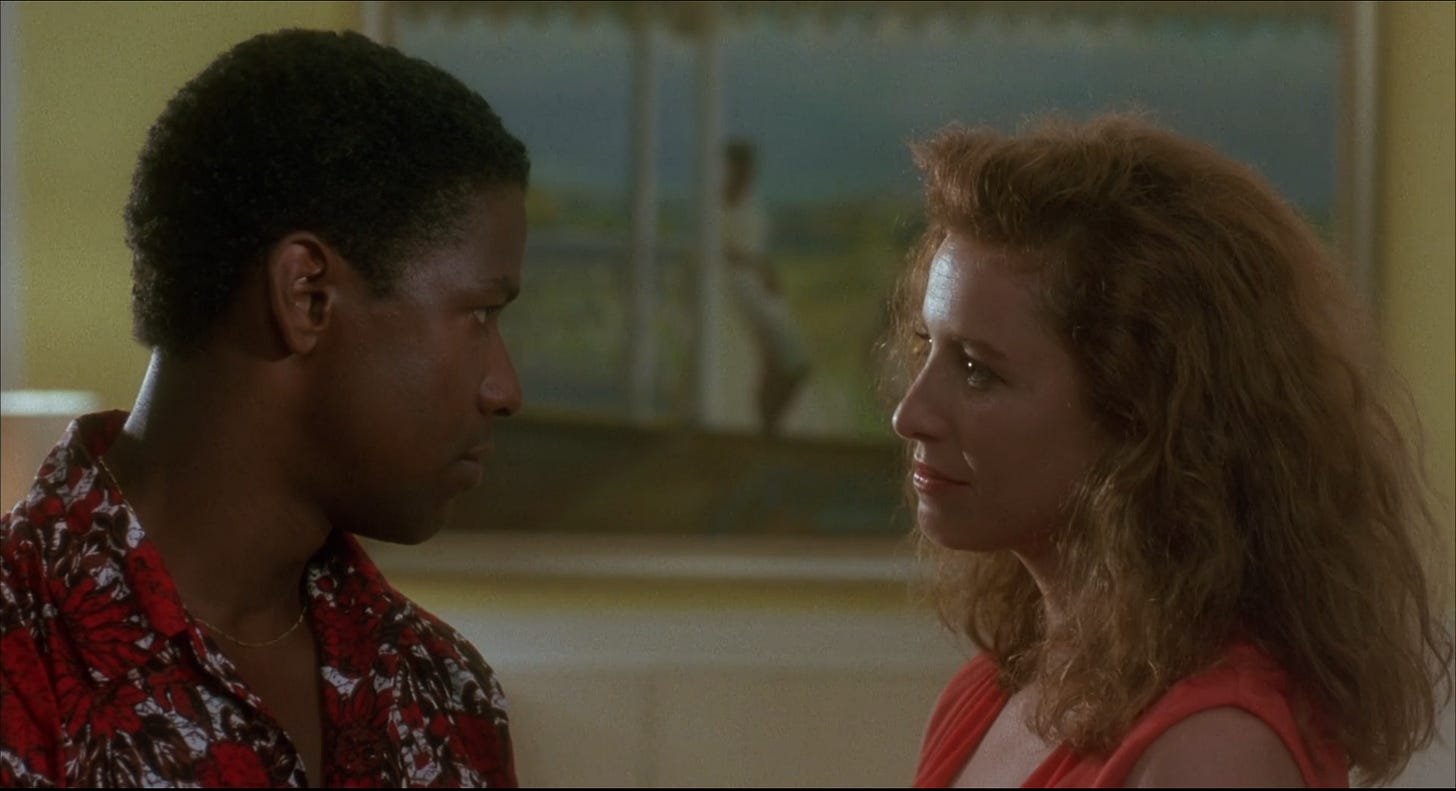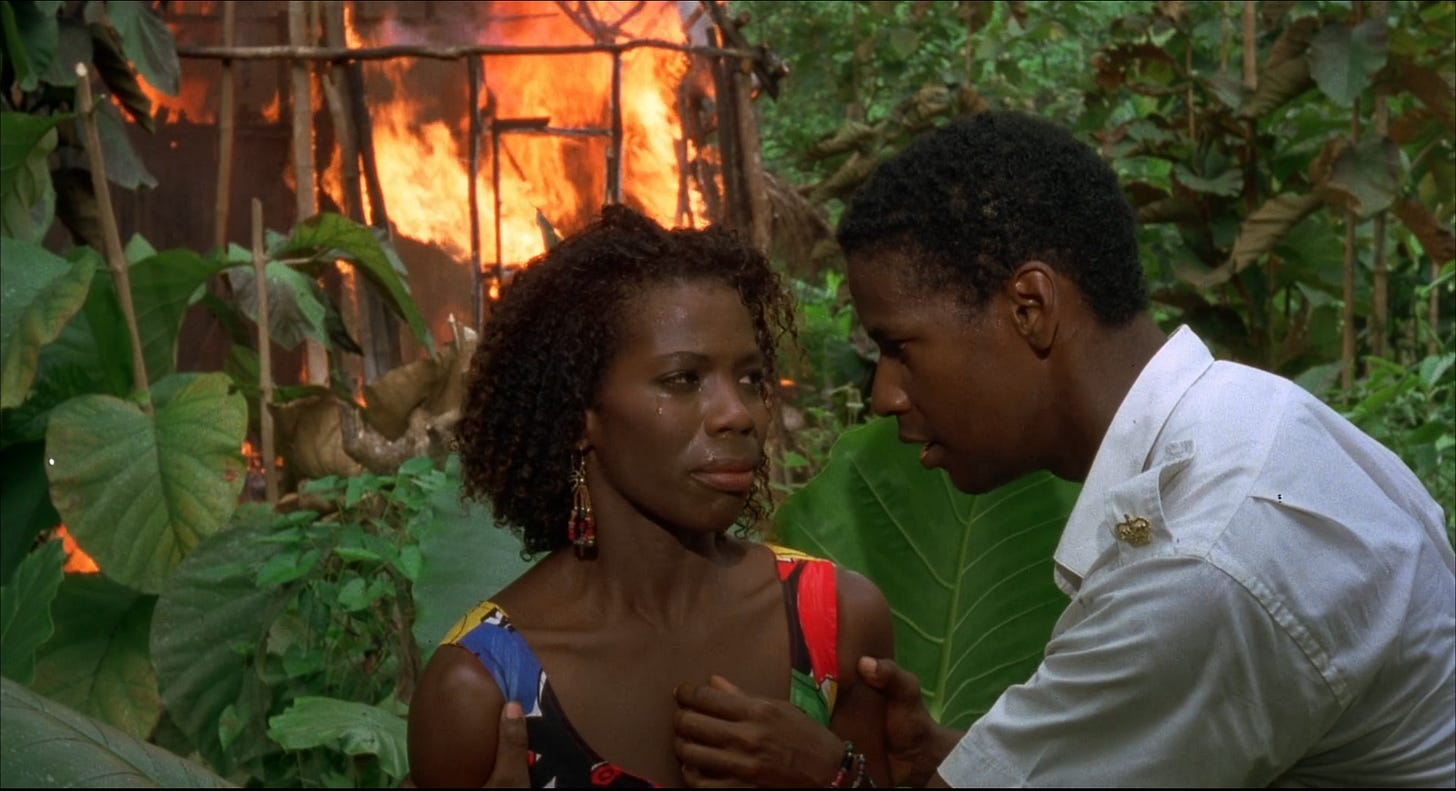The Mighty Quinn
A star is born in Denzel Washington with pedestrian murder mystery
Video Days orders readers to surrender their badge and gun and while suspended for the month of May, return to ten films trafficking in law and order.
THE MIGHTY QUINN (1989) took nearly eighteen years to produce, not because its subject matter was challenging, or as adapted here, is particularly memorable, but because without Sidney Poitier to star in the title role–the actor having already portrayed a virtuous police detective in In the Heat of the Night (1967) and its sequels, They Call Me Mr. Tibbs! (1970) and The Organization (1971)--it took a film financier almost two decades to gamble on another Black leading man they thought would be palatable to general audiences. Hard to believe.
Albert Z. Carr was an economist who briefed two U.S. presidents, serving as an economic advisor to Franklin D. Roosevelt and a consultant for FDR’s successor, Harry S. Truman. Carr’s 1968 article for Harvard Business Review titled “Is Business Bluffing Ethical?” made such an impression that it’s debated online today. Publishing as “A.H.Z. Carr,” his short stories appeared in Harper’s and the Saturday Evening Post, and following his death in 1971, his first novel was published. Titled Finding Maubee, it uncharacteristically–for an author born in 1902–introduced Xavier Brooke, Black police chief of the fictional Caribbean resort island of St. Caro. When a white tourist is murdered and the little black address book of his childhood friend David Maubee is found at the scene, Brooke sets out to find him, woman by woman. The task is easier said than done considering Maubee is a local folk hero, and no one, including Brooke, believes he’s a murderer. Film rights were optioned immediately, with Sammy Davis Jr. set to play the chief and Larry Cohen–who’d write and direct the Fred Williamson pictures Black Caesar (1973) and Hell Up In Harlem (1973)--adapting a script.
Over fifteen years later, the film rights to Finding Maubee were purchased by A&M Films, the motion picture division of A&M Records. A&M was perhaps the most successful privately owned record company in the world, and certainly the largest employer. Co-founded by jazz trumpeter Herb Alpert and record promoter Jerry Moss in 1962, A&M’s fortunes were built on bestsellers like Carole King’s “Tapestry” and Peter Frampton’s “Frampton Comes Alive,” which nearly everyone with a turntable owned a copy of in the seventies. In 1981, A&M executive Andy Meyer and president Gil Friesen launched A&M Films. Meyer and Friesen’s track record producing movies that were commercial or critical successes, and sometimes both–Birdy (1984), The Breakfast Club (1985), Better Off Dead (1985), One Crazy Summer (1986), La Bamba (1987)--suggested a focus not only on the youth market, a big consumer of records, but niche markets specified by race. La Bamba was the first film released simultaneously in English and Spanish languages, and A&M Films was developing a movie about the late Otis Redding, whose recording catalog was held by A&M.
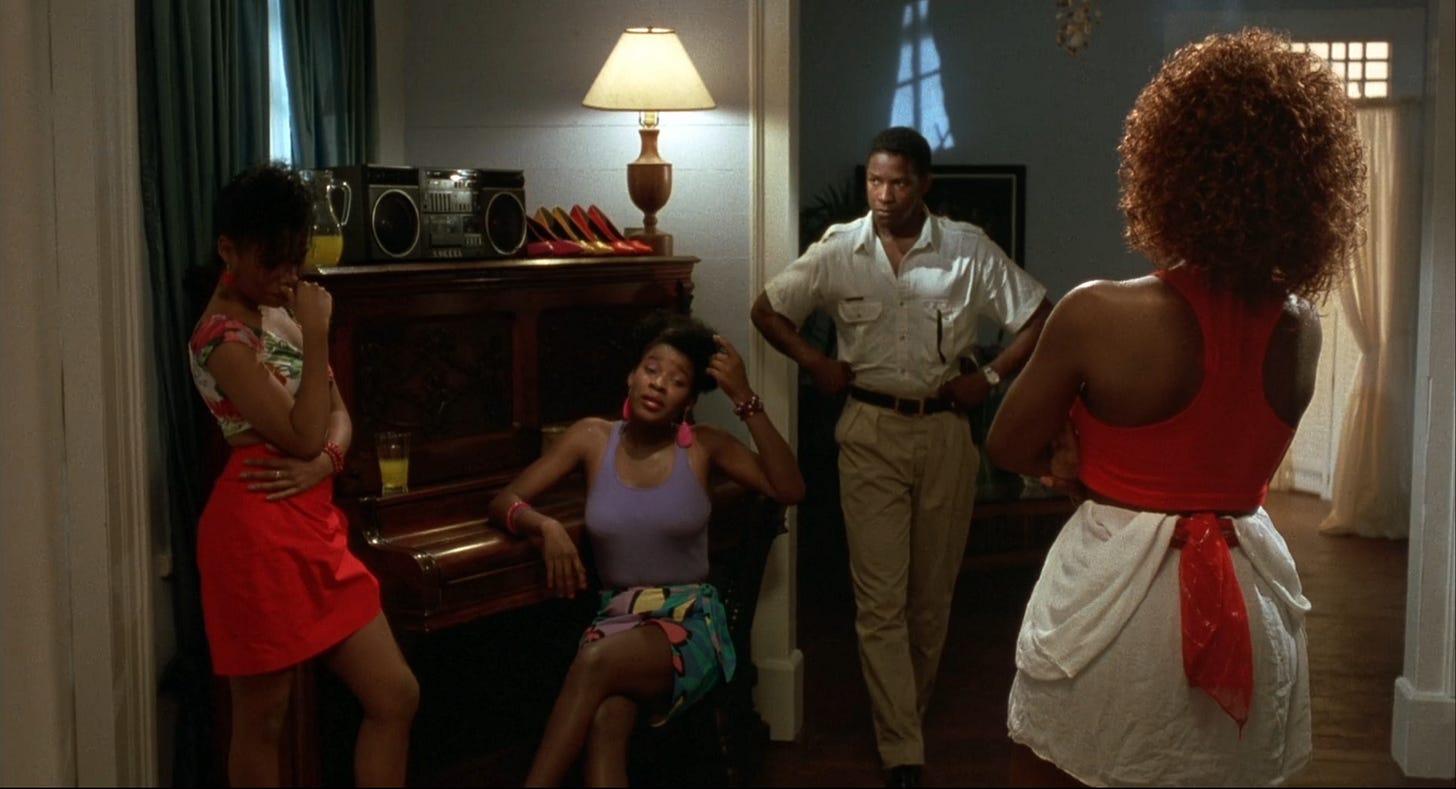
At a time when, not counting Paramount Pictures–which had signed megastar Eddie Murphy to a five-picture deal they extended for five more films in 1987–the only studio that seemed interested in developing material for a Black actor was Warner Bros. Pictures, with Lean On Me (1989) and Driving Miss Daisy (1989) as vehicles for Morgan Freeman, keeping the actor on the lot after he’d worked opposite Michael Keaton in Clean and Sober (1988). Dale Pollock, a former film critic and journalist for Variety who covered the film industry for the L.A. Times and authored Skywalking: The Life and Films of George Lucas, assumed office as A&M Films president. Pollock rolled the dice on risky material written and directed by the Stanley Kubricks or Billy Wilders of tomorrow: Kevin Reynolds with The Beast (1988) and Ron Shelton with Blaze (1989). After his supporting performance as anti-apartheid activist Steve Biko in Cry Freedom (1987), A&M thought highly enough of Denzel Washington as a leading man of tomorrow to acquire material for him. They chose Finding Maubee by A.H.Z. Carr.
Hampton Fancher, an aspiring filmmaker, and most recently screenwriter, adapting the Philip K. Dick novel Do Androids Dream of Electric Sheep? as Blade Runner (1982)--was commissioned to adapt a script, the lead character’s name changing from Xavier Brooke to Xavier Quinn. Carl Schenkel, who’d directed the German language thriller Out of Order (1985) about three men and a woman trapped together in an elevator, as well as four episodes of the HBO anthology series The Hitchhiker, was hired to direct his first English-language feature. Sanford Lieberson, Marion Hunt and Ed Elbert came aboard as producers, and MGM/UA agreed to finance and distribution. With a first-class cast including James Fox, Mimi Rogers, M. Emmet Walsh, Sheryl Lee Ralph, Art Evans, Keye Luke, Esther Rolle, Tyra Ferrell and in the title role, Robert Townsend, shooting commenced a month after Denzel Washington was nominated for his first Academy Award, for Cry Freedom, in March 1988. Several Caribbean locations were considered for the unnamed tropical island of the film before the producers settled on Jamaica, where the entire picture was shot, specifically the sleepy town of Port Antonio, on the northeastern coast. Nearly twenty local actors landed speaking parts: Bob Marley’s daughters Sharon Marley Prendergast and Cedella Marley, Carl Bradshaw, Charles Hyatt, Bobby Ghisays, Cathi Levy (Miss Jamaica 1983), and performing in the wedding band, Marley’s widow Rita Marley.
Retitled The Mighty Quinn, the Bob Dylan tune covered by Michael Rose, Sheryl Lee Ralph, Sharon Marley Prendergast and Cedella Marley in the film, the cozy mystery opened over President's Day weekend 1989. Reviews leaned positive. Gene Siskel and Roger Ebert gave it two thumbs way up. Ebert credited the film for exceeding the standard thriller by not only concerning whodunit but where, how and why, and lauded the casting of Denzel Washington, his charm, humor and sex appeal front and center for the first time in a movie. Siskel was enthralled by how Washington lit up the screen, crediting the film as joyful while also succeeding as a thriller. Both critics forecast him becoming a major star and offered The Mighty Quinn as a candidate for their year-end Top 10 lists (it would finish #6 on Ebert’s). MGM/UA didn’t have as much enthusiasm, opening The Mighty Quinn in 234 theaters in the U.S. where despite excellent reviews, it failed to come close to cracking the top ten grossing films.
Compared to a succession of riveting Denzel Washington performances in films that push viewers to edge of our seats–from Glory (1989) and Malcolm X (1992) to Crimson Tide (1995) and Training Day (2001) — The Mighty Quinn drifts along lazily. What was revelatory in 1989 — a new leading man in a film dominated by Black actors — plays best as a soundtrack today, or something to leave on in the background without paying much attention to. The filmmakers fail their actors. James Fox, often cast as a jolly, good-natured titleowner, plays against type as a hotelier who bristles at Quinn’s presence, questioning good white people about a murder. As his bored wife looking for a diversion, Mimi Rogers generates nearly as much allure as Washington. She isn’t on screen enough to build memorable sexual tension with her co-star, and both she and Fox disappear from the movie. Another good actor in the wrong part is the superlative M. Emmet Walsh. As a business agent who arrives on the island to appraise Quinn’s investigation, the role needed an actor like Christopher Reeve, a bounding, country club type who might tempt the chief with career opportunities in the States, if he’s willing to do him a favor. Nothing more is asked of Walsh in the finished film than he play a nefarious cracker, as he does so well.
In one of the film’s whimsical touches, the cop shop Quinn operates out of has its locker area situated in front of the holding cells, exposing officers to the commentary of their guests. That this is never put to service by the plot might be taken as part of the film’s idiosyncratic charm, but Quinn–who attended college in the U.S. and trained at the FBI Academy in Quantico–isn’t permitted a reaction to any of this, his American tailoring skills never forced to adjust to the fabric of island life. Even the casting of Robert Townsend–between starring in, co-writing and directing Hollywood Shuffle (1987) and The Five Heartbeats (1991)--as Maubee is wobbly. Townsend might’ve worked okay as Quinn, a likable police chief trying to please everyone, but as a romantic outlaw, Denzel Washington was better suited to play Maubee. Carl Schenkel does his best with the resources available to bring the picture an off-beat visual sense, but his are superficial skills that fail to illuminate life in the Caribbean. The Mighty Quinn has the feeling of a movie that was more difficult to make on location than the producers or director might have anticipated. What made it on screen is pleasant, with good music and a stardom-making performance, but also more pedestrian than it could’ve been.
Video rental category: Mystery/ Suspense
Special interest: Forever Summer


